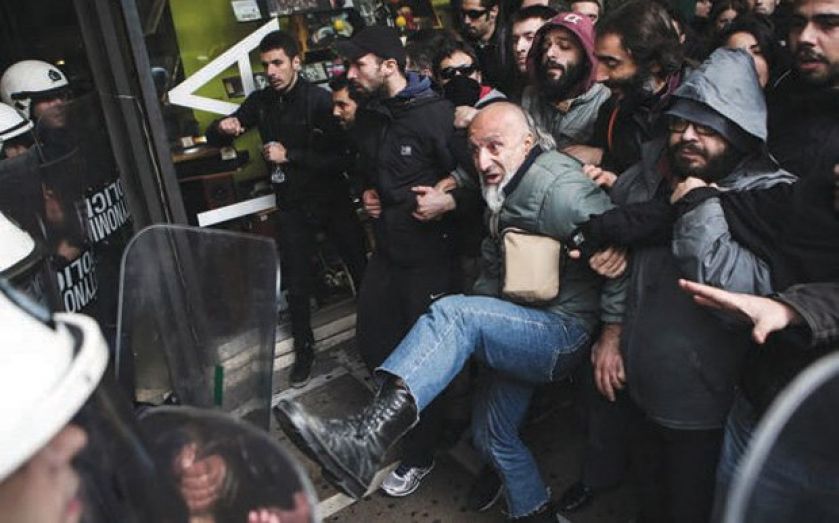Political chaos in Greece adds to euro’s weakness

THE EURO dropped to a nine-month low against the dollar yesterday amid growing economic and political uncertainty in the Eurozone.
The euro dipped as low as $1.1880 before rising back above $1.19 later in the day. Just six months ago the euro was worth more than $1.35.
Two key uncertainties currently plaguing the euro are snap elections in Greece on the 25 January and a programme of asset purchases which could be launched by the European Central Bank (ECB) at its next meeting on the 22 January.
If the current government loses out to Syriza – an anti-austerity party – it is believed the likelihood of Greece leaving the Eurozone will be increased.
“While much hangs on the 25 January election, there is a clear risk that growing uncertainty over Greece’s future in the Eurozone will come to have broader negative economic and market effects in 2015,” said Jonathan Loynes, an economist from Capital Economics.
A poll undertaken by Rass and published in the Greek Eleftheros Typos newspaper at the weekend showed Syriza leading with 30.4 per cent against the incumbent New Democracy’s 27.3 per cent.
It was also found that 74.2 per cent of Greeks favoured remaining in the Eurozone.
Syriza recently moved to reassure voters the party had no intention of leaving the euro. Former prime minister Georege Papandreou has set up a new party which is expected to steal some MPs from his old party Pakos, which is currently in coalition with the New Democracy party.
Meanwhile, in a recent interview with German newspaper Handelsblatt, ECB boss Mario Draghi gave strong hints that a new asset purchase programme would begin in early 2015.
“The ECB’s governing council has instructed the staff and Eurosystem committees to prepare concrete measures,” he said. Draghi added that the risk of deflation was greater than it was six months ago.